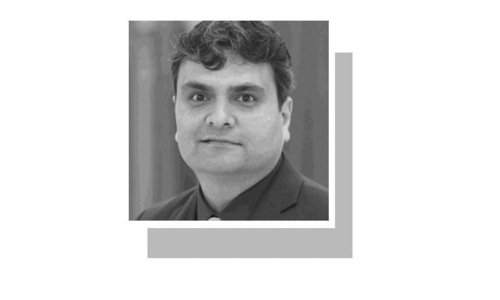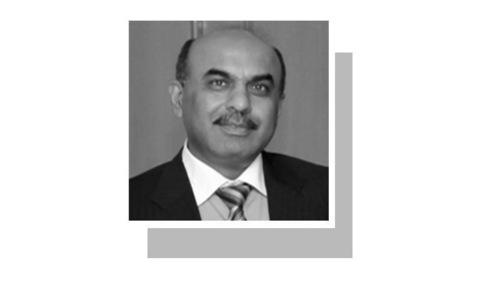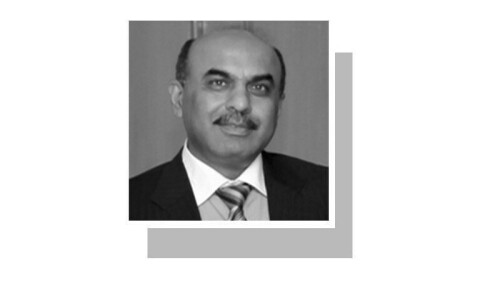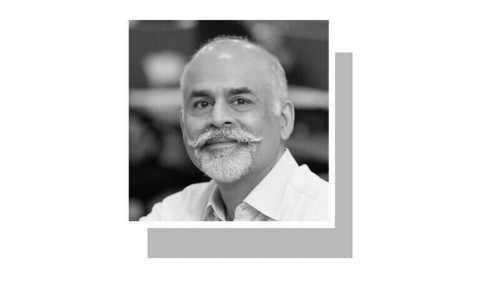THE victory Social Democrat Alexandra Ocasio-Cortez achieved in New York City’s primary election encapsulates the dichotomy that grips America’s political landscape. The victory, which stemmed from voters’ frustration with the complacent Democratic Party and its complicity in promoting the neoliberal, capitalist project in America, is in sharp contrast to Donald Trump’s fascist presidency.
At first glance, it is hard to reconcile the rise of a socialist candidate in the heart of the American empire with the ultra-conservative forces shaping policy in Washington. A closer look, however, reveals that the recent surge of left-wing politics, and Trump’s own meteoric rise to power are products of a decayed political system and a polarised society’s deep yearning for change.
The respective forces that propelled Ocasio-Cortez and Trump to electoral fame have their roots in the neoliberal shade of democracy that has come to define Western states such as the UK and US. This form of democracy shifted power away from the grass roots towards a more ‘technocratic’ form of government and one that reflected ‘centric’ views over the more ideological strands of the traditional left and right.
In America, for instance, the Democratic Party took a sharp turn towards the centre under Bill Clinton in the 1990s. This change stemmed from Clinton’s predecessor, Ronald Reagan’s harbingering of neoliberalism in America. As the Democratic Party came to resemble an increasingly centrist party, mainstream political discourse became increasingly myopic and failed to reflect the aspirations of the working class or ethnic minorities — a phenomenon Tariq Ali discusses in a British context in The Extreme Centre: A Warning.
The turmoil in the US political spectrum holds lessons for Pakistan.
This narrowing of the political landscape only came to the fore once the economic growth of the early 2000s faltered due to the economic recession of 2007-08 that portrayed the ugly side of finance capitalism, and in tandem with Barack Obama’s decision to bail out large banks, revealed the complicity of the state in allowing the crisis to emerge in the first place.
The aftermath of this crisis witnessed the rise of the forces that currently tug at America’s polity, with the Occupy Wall Street Movement and the popularity of Bernie Sanders reflecting the aspirations of the silenced American left, while Trump became the poster boy of the neo-conservative right.
It is these very forces that are now responsible for Ocasio-Cortez’s victory, and for the collective shock of Trump’s success in 2016. It is thus crucial to understand both the Trump presidency, and the resurgence of the socialist left in America in the context of the economic fallout of neoliberalism and the rapidly shrinking political landscape.
This analysis reveals that Ocasio-Cortez’s success in an increasingly intolerant America is not as shocking as it initially appeared. In fact, it could be the bellwether of a movement that brings progressive candidates to Congress and finally brings an end to the corporate, military interests that dominate.
It is also essential to realise that the momentum behind Ocasio-Cortez and Trump stemmed from the inequality neoliberalism gave birth to, and from the myopic political spectrum that became dominant in America.
Ocasio-Cortez’s success, moreover, reveals that the centrist policies Democrats like Obama and Hillary Clinton espoused no longer carry traction with a large segment of American voters. To prevent fascist forces from derailing the project of change in America, it is essential that progressive movements come to the fore and shape policy.
The turbulence plaguing the US political spectrum also holds significant lessons for Pakistan whose own political landscape is increasingly dominated by conservative forces that have silenced progressive voices. This dominance by political elites that do not have much to differentiate between them does not bode well for Pakistan’s social fabric, and can lead to many of the fissures we now witness in America. In fact, the presence of certain extremist parties in the upcoming polls indicates that Pakistan is already on this path.
This is perhaps the biggest challenge Pakistan faces. Rising extremism, poverty, and the present crisis of governance are all linked to its political crisis and to the hijacking of the political discourse by a small but dominant elite.
As we head to the polls on July 25, we must keep in mind that the country will not undergo real ‘change’ until our representatives truly reflect people’s aspirations and work for the most marginalised. Thus, we must work to bring forward a narrative that puts the people’s needs before everything else, and that questions the foundations of the economic and political systems we find ourselves functioning in.
The writer holds Bachelor’s degrees in economics and history from Cornell University.
Published in Dawn, July 20th, 2018












































